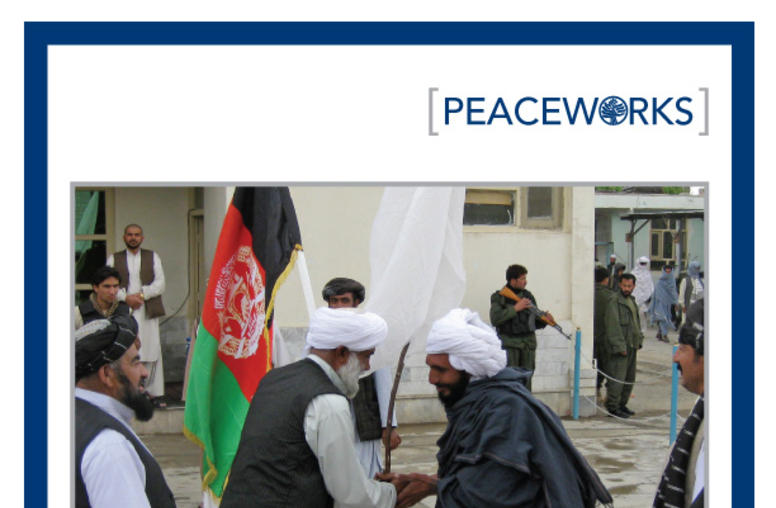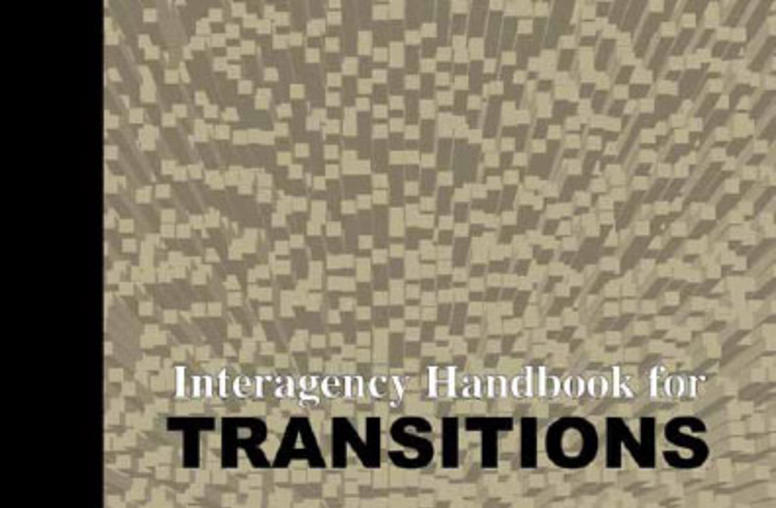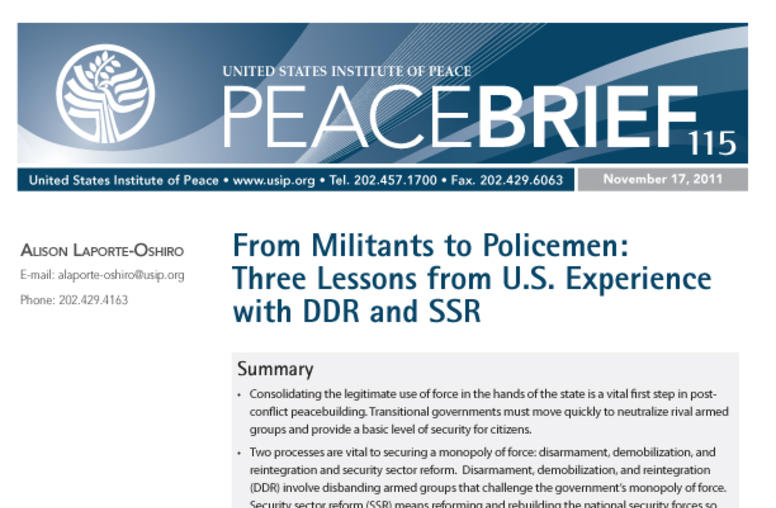Question And Answer
Publications
Articles, publications, books, tools and multimedia features from the U.S. Institute of Peace provide the latest news, analysis, research findings, practitioner guides and reports, all related to the conflict zones and issues that are at the center of the Institute’s work to prevent and reduce violent conflict.

Beyond Power-sharing: Institutional Options for an Afghan Peace Process
Much of the debate about a peace settlement with insurgents in Afghanistan focuses only on political or territorial power sharing. But a successful peace process will require a broader array of measures that allow conflicting parties to share influence and balance that influence with more roles for noncombatants, civilian political actors, and vulnerable groups.
Building Peace and a Partnership with the Military
We asked USIP leaders, from board members to senior staff and experts to explain the effect that events around the world and here at home will have on the U.S. and the contributions the Institute can and does make during a time of tremendous challenge – and opportunity. USIP Chief of Staff Retired Col. Paul Hughes served nearly 30 years on active duty with the Army.

USIP and the U.S. Army Team Up For How-To Guide on Stability Operations
The United States Institute of Peace, the Simons Center for the Study of Interagency Cooperation and the U.S. Army Combined Arms Center got together to discuss challenges and lessons learned from more than a decade of stability operations.
Value of Police Assistance
December 2, 2011 Bob Perito, director of USIP’s Security Sector Governance Center of Innovation, discusses the value of police assistance programs in conflict affected countries – and the importance police can play in counter-insurgency operations. What role should local police play in counter-insurgency operations like those in Iraq and Afghanistan? In the formula for successful counter-insurgency operations—clear, hold and build—local police play a critical role. After U.S. and hos...
Afghan Peace Requires ‘Will and Ideas’
Doubts about mounting a successful peace process in Afghanistan are running high as 2011 nears an end. However, hopes for it have not been extinguished and considerable work needs to be done on laying out what a viable process would include and how it might proceed, according to several Afghanistan specialists appearing at an event held at the United States Institute of Peace (USIP) on Nov. 29.
Handling Conflict by Peaceful Means
USIP leaders explain the effect that events around the world and here at home will have on the U.S., and the contributions the Institute can and does make during a time of tremendous challenge – and opportunity.
Pakistan’s Future: Uncertainty and Hope
Former Pakistani Ambassador to the United States Maleeha Lodhi spoke candidly about the future of Pakistan and what’s next for the country at an event Nov. 18 at USIP headquarters in Washington.
‘Worrying Fragility' Marks Afghan Nation-Building
Afghanistan has benefited from some “amazing” social and economic advances in recent years, but “at the same time, there is a very worrying fragility” as military forces and aid from the United States and other countries wind down, J. Alexander Thier, director of the Office of Afghanistan and Pakistan Affairs at the U.S. Agency for International Development (USAID), told an audience at the United States Institute of Peace (USIP) on November 17.

From Militants to Policemen: Three Lessons from U.S. Experience with DDR and SSR
Consolidating the legitimate use of force in the hands of the state is a vital first step in post-conflict peacebuilding. This USIP Peace Brief analyzes two processes that are vital to securing a monopoly of force: disarmament, demobilization, and reintegration (DDR) and security sector reform (SSR).
Former National Security Adviser Hadley visits the Hill, Briefs on USIP missions in Afghanistan, Pakistan
Former U.S. national security adviser Stephen Hadley and other top USIP staff briefed Hill members about a trip they took to Afghanistan and Pakistan this fall.